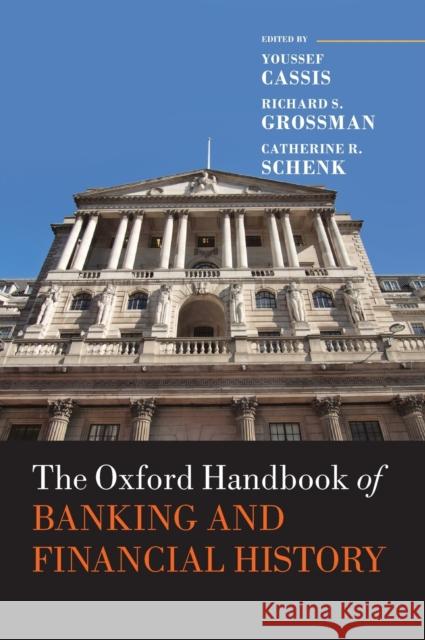The Oxford Handbook of Banking and Financial History » książka
topmenu
The Oxford Handbook of Banking and Financial History
ISBN-13: 9780199658626 / Angielski / Twarda / 2016 / 552 str.
The Oxford Handbook of Banking and Financial History
ISBN-13: 9780199658626 / Angielski / Twarda / 2016 / 552 str.
cena 702,29
(netto: 668,85 VAT: 5%)
Najniższa cena z 30 dni: 578,97
(netto: 668,85 VAT: 5%)
Najniższa cena z 30 dni: 578,97
Termin realizacji zamówienia:
ok. 16-18 dni roboczych.
ok. 16-18 dni roboczych.
Darmowa dostawa!
The financial crisis of 2008 aroused widespread interest in banking and financial history among policy makers, academics, journalists, and even bankers, in addition to the wider public. References in the press to the term 'Great Depression' spiked after the failure of Lehman Brothers in November 2008, with similar surges in references to 'economic history' at various times during the financial turbulence.
In an attempt to better understand the magnitude of the shock, there was a demand for historical parallels. How severe was the financial crash? Was it, in fact, the most severe financial crisis since the Great Depression? Were its causes unique or part of a well-known historical pattern? And have financial crises always led to severe depressions? Historical reflection on the recent financial crises and the long-term development of the financial system go hand in hand. This volume provides the material for such a reflection by presenting the state of the art in banking and financial history. Nineteen highly regarded experts present chapters on the economic and financial side of banking and financial activities, primarily though not solely in advanced economies, in a long-term comparative perspective. In addition to paying attention to general issues, not least those related to theoretical and methodological aspects of the discipline, the volume approaches the banking and financial world from four distinct but interrelated angles: financial institutions, financial markets, financial regulation, and financial crises.










